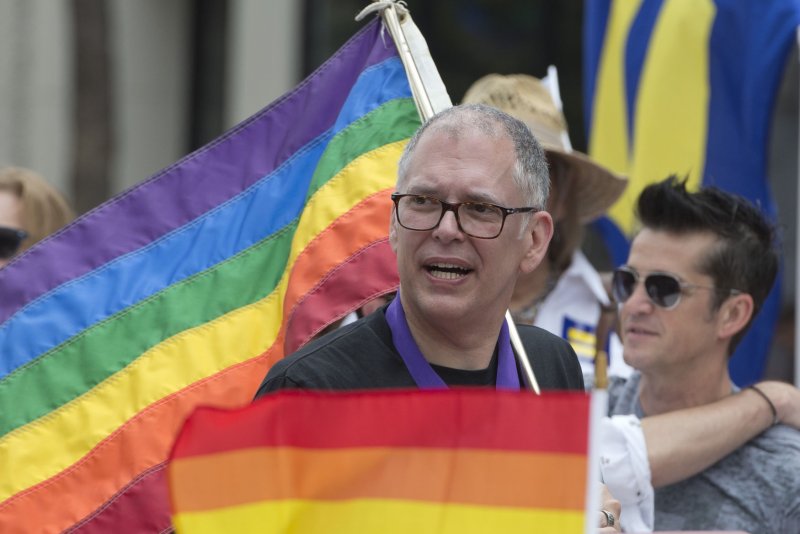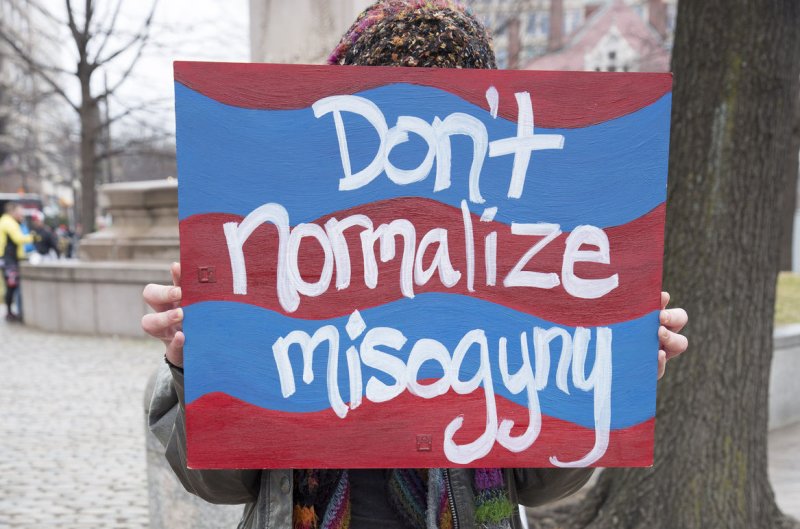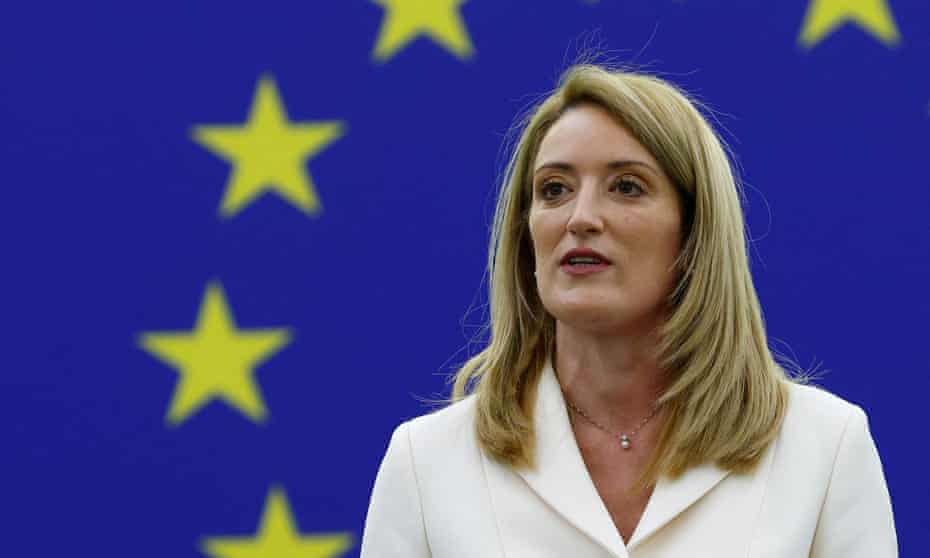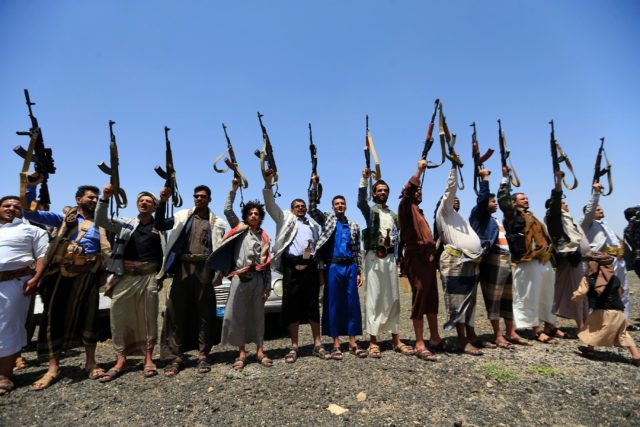And if the rebels make good on their promise to launch further strikes, it could dent the UAE's image as a safe place to live, work and do business in a troubled region.
Here's what to know about the crisis.
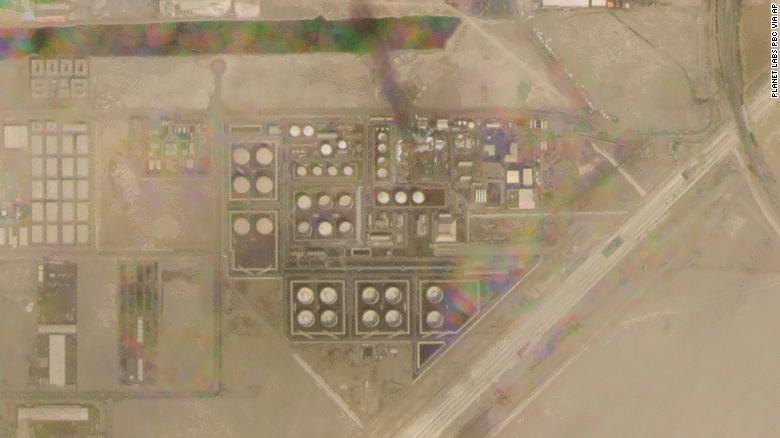
In this satellite image provided by Planet Labs PBC, smoke rises over a fuel depot in Abu Dhabi's Mussafah neighborhood on Monday.
Why was the Houthi attack so significant?
In addition to being the first deadly attack in the UAE in many years, the drone attacks on Monday demonstrated the Houthis' ability to launch long-range attacks. Yemen's rebels frequently conduct cross-border attacks on Saudi Arabia, Yemen's neighbor, but these were relatively short distances in comparison with Abu Dhabi, and the vast majority of the missiles and drones were intercepted before they hit their targets.
Oil prices spiked after the attacks, which spurred a flurry of international condemnation from the US and other world leaders. UAE Foreign Minister Sheikh Abdullah bin Zayed asked the US to reclassify the Houthis as a foreign terrorist organization -- a label that was instituted in the final days of the Trump administration before being lifted by President Joe Biden.
The Houthis previously claimed to have conducted strikes on the UAE, which it does not share a border with. But Emirati authorities never acknowledged the alleged attacks, and many observers considered the claims to have been farfetched.
Now Yemen's Houthis have delivered on a threat that they have for years made against the UAE, a major coalition partner in a six-year Saudi-led military campaign to crush the Iran-backed rebels.
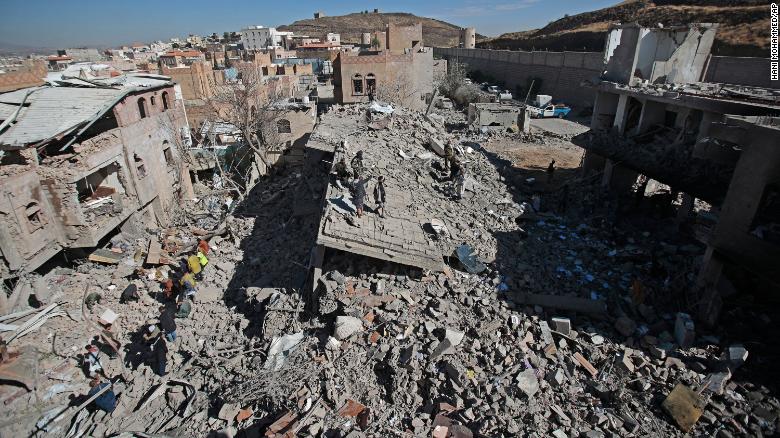
The wreckage of buildings damaged in Saudi-led coalition airstrikes in Sanaa, Yemen, on Tuesday.
In 2019, the UAE pulled most of its troops from Yemen, after privately deeming the war unwinnable. The campaign failed to crush the rebels but exacted a huge humanitarian toll, with thousands of Yemenis dead and malnourishment and disease widespread.
More recently, however, the UAE has returned to the fray, backing Yemeni groups in flashpoints like the oil-rich provinces of Shabwa and Marib and repelling Houthi fighters from the strategic desert town.
Now, analysts say the rebels are eager to spark another Emirati withdrawal.
"The intervention of the UAE-supported forces was a game-changer. This angered the Houthis," said Maged al-Madhaji, executive director and co-founder of the Sana'a Center for Strategic Studies. "The Houthis are trying to create some sort of balance by striking the image of stability and security in the Emirates."
What's at stake for the UAE?
The oil-rich nation has for decades managed to stave off the political turbulence occurring elsewhere in the region. Stability is one of the UAE's major selling points -- helping to attract millions of expatriates and billions of dollars in foreign investment -- but that image could be shattered if the conflict with the Houthis escalates.
The UAE relies heavily on foreign workers, who make up the vast majority of the country's workforce. Authorities intensively manage the country's reputation, and freedom of political expression is practically non-existent. Defenders of those restrictions on expression argue that they're necessary to maintain stability against all odds in the conflict-ridden Middle East.
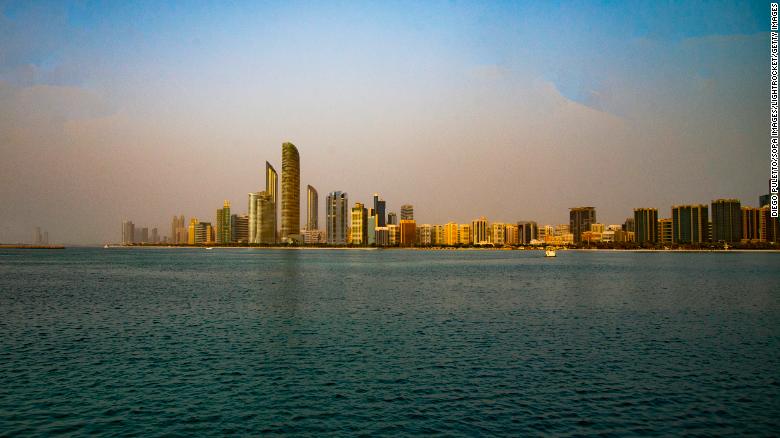
The Abu Dhabi skyline, pictured in 2020.
But for years, the UAE's muscular foreign policy — which saw it intervene in Egypt, Libya, Syria and the horn of Africa, in addition to Yemen — imperiled that very stability. When tankers were being targeted by its regional arch-nemesis Iran in 2019, off the coast of the UAE, Abu Dhabi quickly changed tack.
Since then it's been on a diplomatic spree to heal years-old rifts. It has made a number of overtures to Iran, including sending a high-level delegation reportedly in October 2019 and then again in late 2021. It's also mended ties with Syria's pariah president Bashar al-Assad, after backing armed groups that sought to overthrow him in that country's war. The UAE's leadership has repeatedly said that it seeks to become a deescalating force in the region.
Yet Monday's attack underscored a point that many observers have made, which is that turning the page on a decade of blood-drenched proxy war will be neither smooth nor instantaneous. All countries in the region, not just the UAE, will have a vested interest in a rapid deescalation of Monday's violence.
Was Iran involved in the Houthi attack on the UAE?
We don't know. What we do know that the drones were likely supplied by Iran, the principal supporter of the Houthis in their war on the internationally-recognized government of Yemen. But it is unclear if the Houthis' backers in Tehran ordered the strike, or if the rebel group suddenly went rogue.
It wouldn't be the first time Iran-aligned groups appeared to go their own way. In November 2021, the head of Iran's elite Quds force Esmail Qaani paid a visit to Iraqi Prime Minister Mostafa al-Kadhimi, shortly after an attempt on the life of Iraqi Prime Minister Mostafa al-Kadhimi by Iran-backed militias. Some observers saw the visit as a bid to distance Iran from the actions of their militant allies.
Another reason to suspect that Houthis acted on their own accord is that Iran has repeatedly said that it wishes to revive relations with its regional foes. Iran's new hardline President Ebrahim Raisi has received at least two invitations to visit the UAE, according to Iranian state media.
In their statements condemning the attack in Abu Dhabi, Saudi Arabia and the UAE -- uncharacteristically -- steered clear of blaming the rebel group's backers in Tehran. Iran has not yet publicly commented on the attack.
Yet, as ever, Iran's leadership is hard to read. A Lebanese news network, Al Mayadeen, reported that Raisi met with the head of Sana'a's negotiation team in Tehran on Monday, the day of the attack. Some observers viewed that as an admission of responsibility in the Abu Dhabi attack.
What does this mean for the Iran nuclear talks?
The violence on Monday has the potential to derail the nuclear negotiations in Vienna, as well as parallel talks between Saudi Arabia and Iran seen as critical to the success of a possible second version of the 2015 deal.
If Iran is believed to be behind the Monday attack in Abu Dhabi — in the same way that they were widely accused of being responsible for the 2019 attacks on ARAMCO oil refineries (Iran denied the allegations) — then confidence-building measures could collapse and it would be difficult to see how the negotiations could continue.
If, on the other hand, Iran brings the Houthis to heel, as an overture to its regional foes, then Monday's violence may blow over and the negotiations could carry on, possibly unabated.
CNN's Sarah El Sirgany contributed to this report from Abu Dhabi.
